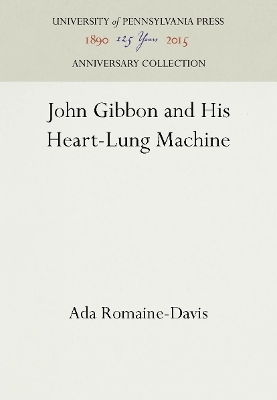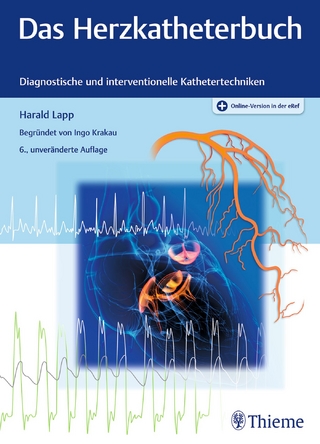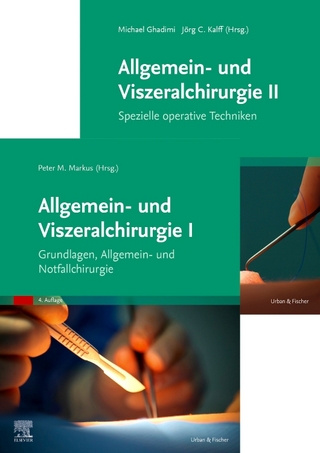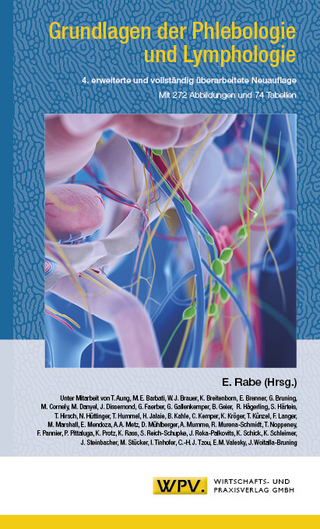
John Gibbon and His Heart-Lung Machine
Seiten
1992
University of Pennsylvania Press (Verlag)
978-0-8122-3073-4 (ISBN)
University of Pennsylvania Press (Verlag)
978-0-8122-3073-4 (ISBN)
- Lieferbar (Termin unbekannt)
- Versandkostenfrei innerhalb Deutschlands
- Auch auf Rechnung
- Verfügbarkeit in der Filiale vor Ort prüfen
- Artikel merken
John Heysham Gibbon, Jr., M.D., was the first researcher to develop a heart-lung machine that could fully support an adult's cardiac and respiratory functions during surgical procedures to repair defects in the heart and lungs. Romaine-Davis here provides a thorough study of Gibbon and his accomplishment.
John Heysham Gibbon, Jr., M.D., was the first researcher to develop a heart-lung machine that could fully support an adult's cardiac and respiratory functions during surgical procedures to repair defects in the heart and lungs. The difficulty of such a task can be seen in the number of people who attempted it for over a century: the list is long. Gibbon succeeded on May 6, 1953, when he repaired an atrial-septal defect with the patient supported entirely by the machine for 27 minutes.
Ada Romaine-Davis contends that few realize how long Gibbon worked to achieve this success. To rectify the situation, Romaine-Davis here provides a thorough study of Gibbon and his accomplishment. She shows how Gibbon overcame discouragement from his peers and mentors and obtained crucial support from IBM Board Chairman Thomas Watson. She examines each of the models produced by Gibbon and puts his achievement into historical perspective. Gibbon himself chose not to pursue cardiac surgery; he remained a thoracic surgeon. Others went on to develop the knowledge and skills that today make open-heart surgery as safe as other major surgical procedures. As Romaine-Davis amply demonstrates, these pioneers stand on the shoulders of a stubborn, persevering, single-minded genius whose determination to leave a legacy to his profession resulted in the one thing essential for sustained progress in heart surgery: John Gibbon's heart-lung machine.
This meticulously researched study will make fascinating reading for physicians—especially surgeons—as well as for students and scholars of medical history and science and technology.
John Heysham Gibbon, Jr., M.D., was the first researcher to develop a heart-lung machine that could fully support an adult's cardiac and respiratory functions during surgical procedures to repair defects in the heart and lungs. The difficulty of such a task can be seen in the number of people who attempted it for over a century: the list is long. Gibbon succeeded on May 6, 1953, when he repaired an atrial-septal defect with the patient supported entirely by the machine for 27 minutes.
Ada Romaine-Davis contends that few realize how long Gibbon worked to achieve this success. To rectify the situation, Romaine-Davis here provides a thorough study of Gibbon and his accomplishment. She shows how Gibbon overcame discouragement from his peers and mentors and obtained crucial support from IBM Board Chairman Thomas Watson. She examines each of the models produced by Gibbon and puts his achievement into historical perspective. Gibbon himself chose not to pursue cardiac surgery; he remained a thoracic surgeon. Others went on to develop the knowledge and skills that today make open-heart surgery as safe as other major surgical procedures. As Romaine-Davis amply demonstrates, these pioneers stand on the shoulders of a stubborn, persevering, single-minded genius whose determination to leave a legacy to his profession resulted in the one thing essential for sustained progress in heart surgery: John Gibbon's heart-lung machine.
This meticulously researched study will make fascinating reading for physicians—especially surgeons—as well as for students and scholars of medical history and science and technology.
Ada Romaine-Davis was Professor of Nursing at the Johns Hopkins University.
Figures
Plates
Tables
Acknowledgments and Permissions
Preface
Birth and Early Years
The 1930s-Sigificant Years
JHG the Inventor
The 1940s-Model I
Total Circulation
Experiments with Occlusion of the Venae Cavae
The 1950s-Model II
Bypass Surgery in Humans
Model III
The Mayo Clinic
The Mid-1950s to the 1970s
Support for Medical Research-1930 to 1955
In Support of Animal Experimentation
Impact of the Heart-Lung Machine
Summing Up: JHG the Man
Afterword
Notes
Glossary
Appendix
Biblliography
Index
| Reihe/Serie | Anniversary Collection |
|---|---|
| Zusatzinfo | 75 illus. |
| Verlagsort | Pennsylvania |
| Sprache | englisch |
| Maße | 152 x 229 mm |
| Themenwelt | Medizinische Fachgebiete ► Chirurgie ► Herz- / Thorax- / Gefäßchirurgie |
| Medizinische Fachgebiete ► Innere Medizin ► Kardiologie / Angiologie | |
| ISBN-10 | 0-8122-3073-6 / 0812230736 |
| ISBN-13 | 978-0-8122-3073-4 / 9780812230734 |
| Zustand | Neuware |
| Haben Sie eine Frage zum Produkt? |
Mehr entdecken
aus dem Bereich
aus dem Bereich
Diagnostische und interventionelle Kathetertechniken
Buch (2022)
Thieme (Verlag)
220,00 €
Buch | Hardcover (2022)
Urban & Fischer in Elsevier (Verlag)
270,00 €
Buch | Softcover (2024)
WPV. Wirtschafts- und Praxisverlag
75,00 €


